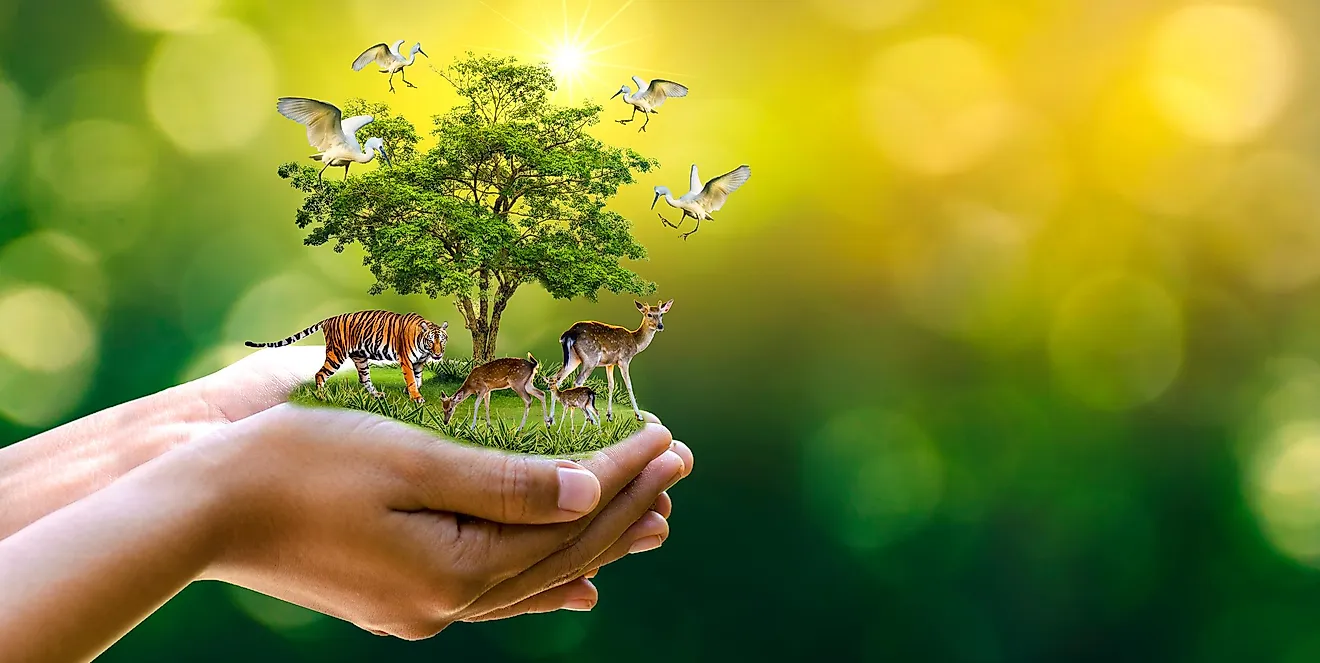Do Humans Need Animals To Survive?

- Understanding the fragility of our ecosystem will only come if we fully realize how essential ants and bees are for us. They are so fragile, you can not even see them most of the time, yet they do so much for everything and everyone on the planet.
- Termites can process cellulose because they have protozoa and bacteria inside their gut, which helps them to feed on wood and roots.
- Phytoplankton that can do photosynthesis usually stays in the layers of waters and oceans that have enough light to ensure that process.
Do we need animals to survive on this planet? The simple answer is - absolutely yes. Your first assumption may be that we need to eat them to survive, and there is nothing wrong with that because the human species has based its diet on eating animal flesh for a long time now. However, with alternate diet choices you can have today (vegan or vegetarian), we will stay away from the argument that views animals strictly as food, all the world of fauna does so much more on planet Earth.
One argument that is always worth repeating is the fact that everything that lives and breathes on this planet is somehow connected. The ecosystem of Earth, all the plants, animals, humans, even viruses, and bacteria create a complex network. Yes, we seem to be the ones who are reshaping the land and disrupting the balance in nature, but we still depend on the animals that share the same living space. No matter how big or small animals are, they all serve a role within their ecosystems and construct the notion of life as we know it.
Ants And Termites
Did you know there are more than 12,000 different ant species? So many of these insects live underground, and they are doing incredible things that are crucial for maintaining and enabling life above ground. First of all, we all know ants do a lot of digging, they are good at it.
However, when they dig the tunnels, they are helping with the decomposition of the soil. As they create their underground homes and transport routes, they fill the ground with oxygen and recycle the nutrients they find along the way. This is incredibly important for maintaining healthy soil, the one where plants would thrive.
Ants are also involved in the transportation of seeds from one place to their home, where the soil is pretty fertile and potent. Ants are technically using seeds for food, but they ‘’eat’’ them in the least harmful way you could eat something, as they consume only the elaiosome, which are tiny formations on the seed’s surface. They do not harm the plant by doing so.
You might think of termites as nothing but a problem. If ants are good digging tunnels underground, termites excel the same way in eating through wood. They are not doing that because they have a strong urge for destruction and want you to spend money on repairs, but because their diet is based on different types of wood, roots, and bark.
Termites are very special. If you look at the fact that they can eat wooden parts of your house, you will understand how they are capable of eating cellulose materials. This is precisely where their importance for the ecosystem stands: they are detritivores and decomposers. As the plants start to decompose, termites jump in the scene and start consuming that material. Imagine if all the plants that stayed above the ground throughout their process of decomposition, that would leave the soil without any energy.
Bees
We are almost sure you have heard the phrase ‘’if bees are gone, we are all gone’’. There really is no easy way to put this, but bees are the insects that almost every other species on this planet depends upon. Why? Because they are flying around and help with the pollination of plants. If they did not do that, plants would not grow, and guess what - that means no food for other animals, and definitely no food for us.
It is alarming and scary to know that the global population of bees has dropped more than 80% in some parts of the world because of the way people treat the environment. Pollution, pesticides, climate change - everything is affecting the life of bees.
Plankton
If we leave the land now and submerge underwater, we would find more than 50,000 different species of plankton. Plankton is mostly microscopic, but all the small algae and bacteria are food for literally billions of other sea animals. They are a source of food for fish, dolphins, seabirds, and even whales. However, there is one more thing plankton is involved in, other than sustaining all marine life as we know it.
Plankton has the incredible ability to accept energy it gets from the sun and absorb nutrients from the sea, and by doing so, it creates oxygen. Why? Because this is the process of photosynthesis, and oxygen comes out of it. Half of the world’s oxygen comes from plankton!











